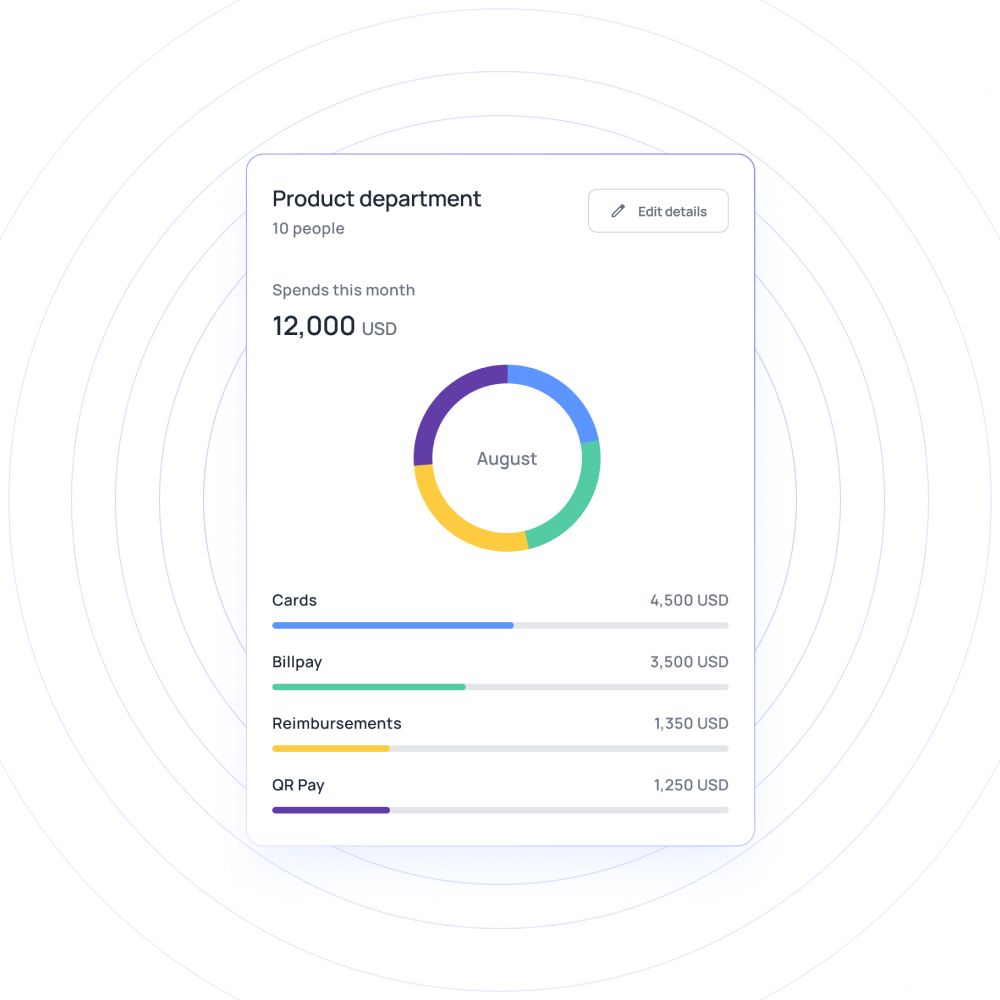5 best practices for allocating marketing budgets
Marketing expenses are just not expenses; they are an investment for a business. With the help of a marketing budget, companies can make informed business decisions, optimize their marketing strategies, make them more consumer-centric, and develop new methods to approach the market while adhering to the budget constraint.
In the greed of establishing a product niche and earning profits, companies spend recklessly without reviewing the outcomes and analyzing the cost per campaign. Without strategic allocation of every dollar in the marketing budget plan, companies continue to fail to unlock marketing gimmicks and target the right set of audiences. With limited knowledge of finance and budgeting, marketing leaders are bound to make decisions that are not cost-optimized.
Importance of budget planning for marketing
The marketing budget is an extensive budget that deals with advertising and awareness functions and focuses on making the product more customer-oriented.
The marketing budget helps in setting clear goals and expectations. It guides the employee's efforts and actions in one direction. It helps identify the financial blind spots in marketing workflows and allocate the proper funds to reverse them.
The budget helps in comparison between the actual and desired outcomes. With the help of budgets, companies reduce unnecessary marketing campaigns and run only those with maximum leads and high conversion.

What expenses to expect when planning your marketing budget?
The marketing expenses are the costs of advertising and promoting your products. With new developments in marketing norms, these expenses tend to change, thereby shifting the marketing budget. However, some expenses are standard irrespective of the nature of the product and the size of business operations.
Press conferences
Brand awareness expenses
Social media campaigns
Paid advertisements
PR campaigns
Research costs
Hiring costs of marketers
Marketing subscriptions tools
Website creation, maintenance, and development expenses
Graphic designing and creatives expenses
Are you spending your marketing budget wisely?
Creating a full-fledged marketing budget goes in vain if the company fails to make its judicious use. Just because there are funds allocated for marketing costs doesn't mean the marketing manager and employees keep on spending them without a well-written plan.
Marketing spending plan
Without a clearly defined marketing plan, it's pretty apparent that the employees might indulge themselves in unnecessary activities. And with unrequired tasks being accomplished, the allocated budget is bound to go off-track. By drafting the goals to be achieved, employees' efforts can be steered in the same direction, leaving no scope for misinterpretation.
Use in-house resources efficiently
Outsourcing professionals can pull down your budget to a great extent because these professionals are highly expertized in their field; as a result, their requirement for monetary compensation is sky-high. The marketing manager can deploy the existing workforce to carry out these tasks to maintain an adequate budget balance. If they do not possess the required skills, the cost of training and development will still be far less than outsourcing.
Calculate your ROI
Every dollar spent by the marketing department generates leads and increases the customer conversion rate. Marketing campaigns play an important role in reaching out to customers by creating brand awareness. But for the sake of promotions, they cannot go on recklessly spending the budget. The marketing head needs to be vigilant while calculating the ROI. If certain campaigns are not delivering the desired results, they can be closed to save the budget.
Simplify your marketing budget management like never before
Where can you effectively allocate your marketing budget?
The marketing budget allocation is where companies go wrong by giving out less or more funds than required. A company's worst nightmare is its dollars getting wasted behind unnecessary tasks. To avoid this, companies need to plan out their marketing expenses.
Optimize your SEO game
Google SERP updates its page ranking methods and algorithms from time to time. The SEO strategy previously used might get outdated once the new algorithms are introduced. Therefore, companies need to update their SEO strategy in alignment with the current methods.
Focus on organic leads
Paid Ad campaigns are enough to burn a company's pockets. With high cost per click and cost per lead, the funds utilized take a toll on the marketing budget. If companies focus on leveling up their organic outreach, they can save money by improving the quality of landing pages, preventing overstuffing of keywords, increasing the readability and quality score of the page, and they can improve SEO optimization.
Align sales and marketing functions
Owing to the communication gap between the sales and marketing departments, they often pitch the product differently. The marketing team might claim to offer a 15% discount on all products, but unaware of this, the sales team continues to provide 10%. This causes a discrepancy between the two departments leading to utter chaos and confusion. Reversing the marketing campaign after similar situations causes undeserved budget draining.
Invest in marketing tools
With intelligent software like Google Ads, Hubspot, MailChimp, Hootsuite, and Squarespace, you can easily create and manage your marketing game. Companies no longer need to juggle multiple paper documents and files to derive the team's performance. With SaaS tools, companies can select the right approach for them, understand what method works the best for them, increase employee participation in unloading their work, and improve the overall work efficiency.
How to spend your marketing budget effectively?
Companies cannot keep scrambling for every dollar when it comes to marketing spend. They need to carefully decide the course of action that will govern the marketing expenses.
Reduce your overhead costs
Companies enter a state of unstable equilibrium when their expenses rise above their income. Precisely, we mean overhead costs. Apart from the regular expenses, the overhead costs eat up a significant chunk of your marketing budget. These expenses can be penalties, late payment fees, high-priced SaaS tools (with no significant contribution), high dependence on outsourcing, unrequired software subscriptions, high-cost ads, and more.
Go paperless
In the long run, companies can save vast amounts of money by simply escaping from the traditional budgeting methods. Saving your printing, stationery, paper letters, handwritten notes, and more expenses can bring down your marketing costs to a great extent.
Unnecessary media advertising
For brand recognition, companies often indulge in high advertising and promotional activities. This includes conferences, events, and media releases that exhaust the marketing budget.
Opting for more cost-conscious and sustainable media campaigns can lead to more quality customers, as aggressive media marketing can be seen as a way to force buying the product.
Discard heavy spending on SEO
Companies make heavy expenditures on search engine optimization to achieve more brand visibility. It's often done by paying high costs to be visible in the top five searches of the keyword. This can get tricky if the keyword volume is high and every other company is betting on a higher bid. Hence, it's best if companies try to improve their content planning and approach their audiences in a way that does not seem too overwhelming.
Align marketing goals with organizational goals
Establish smart and specific marketing goals that align with your organizational goals. If the organizational goal is to increase sales by 60%.
- Estimate the number of products to be manufactured.
- Connect with the sales department to know their personnel's ability to achieve the target.
- Draft a marketing plan in accordance with the data obtained.
Do not just focus on achieving the marketing goals. Your departmental goals should be a subset of the organizational goals, not vice-versa.
Get started with Volopay now
Volopay offers a labor-saving and cost-effective marketing expense tracker to manage marketing spend and provide over-the-top visibility on your marketing budget plan.
With robust spend management tools like corporate cards, reimbursements, Bill Pay, accounts payable automation, and global business accounts, Volopay single-handedly remodels your accounting structure to run in perfect sync with all your expenses in real-time.









Trusted by finance teams at startups to enterprises.